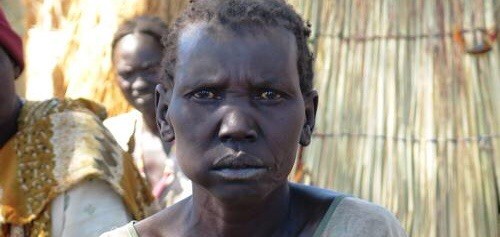Aweil North County hosts 11 camps for South Sudanese displaced from Abyei, Abiemnhom and other areas. According to local authorities, 1,542 households have arrived in the county since October last year.
One resident at Calek camp, Abok Mawein, says she traveled from Abiemnhom in Unity State after an attack. She recalls, “When militia attacked the area I fled from my village. They attacked in the night and I lost my children and husband in the chaos. Until now I don’t know if they are alive or not.”
Medical organization MSF says that most of the displaced people have arrived “empty-handed” and are desperately in need of food, water and medical care. Even the host population of the county suffers a chronic shortage of medical supplies and services.
In a press release, MSF said that most of those arriving have fled from violence and militia attacks in the contested border region of Abyei, while some others like Abok have come from as far as Unity and Upper Nile states.
MSF expressed concern about the sanitation and nutrition situation in the camps. “Many new arrivals are only surviving on water from hand-dug wells and almost all are forced to defecate in the open due to a lack of sanitation facilities,” reads the press release.
The organization says it has distributed supplies such as jerry cans to transport water, cooking pots, soap and blankets to 1,041 families. It is also treating patients for malaria, respiratory infections and diarrhoea and vaccinated 533 children against measles at Pour Akon camp.
However, the lack of proper water and sanitation facilities is increasing the risk of waterborne diseases. In one camp, MSF teams treated 42 children for acute watery diarrhoea in a single week.
The refugees have been gathering wild tamarind fruits and the leaves of the Akuor tree for their food. Some collect desert dates, spending hours using sticks to crack open the fruit stones so the inner seed can be boiled and eaten, while others collect firewood and make grass mats to sell in the market in order to earn money to buy food.
MSF warns that the nutritional situation of the refugees could deteriorate in the coming months.
Photo: Abok Mawein, a displaced woman in Aweil North County (Karin Ekholm/MSF)




